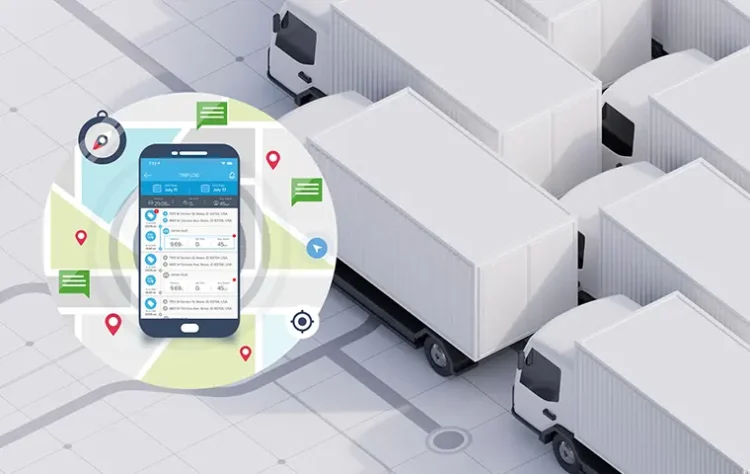In the fast-paced world of fleet management, productivity is the pulse that keeps the gears turning. For fleet managers, the quest to boost efficiency, reduce costs, and maintain a high level of service can often seem like a juggling act.
But fret not—enhancing productivity isn’t just a lofty goal; it’s a tangible one with the right strategies in place. This article dives into some essential tactics that can transform the way fleet operations are handled, ensuring that your fleet remains a well-oiled machine, figuratively and literally.
Page Contents
Embracing Technology

Source: merchantsfleet.com
The digital revolution has not spared the fleet industry. Today’s technology offers myriad opportunities to streamline operations. Implementing fleet management software is akin to having a high-powered microscope; it allows managers to zoom into every aspect of their fleet operations with incredible precision.
These systems can track vehicle locations, optimize routes, schedule maintenance, and even monitor driver behavior. The key here isn’t just to have the technology but to fully integrate it into daily operations to ensure every decision is data-driven. This approach minimizes guesswork and maximizes efficiency.
Integrating a Plant Tracker System
Another innovative strategy to boost fleet productivity involves the integration of a plant tracker system. This type of technology goes beyond basic vehicle tracking; it specializes in monitoring the exact usage and operational data of machinery and equipment within the fleet. Plant trackers are particularly useful for fleets that include heavy machinery and construction equipment, offering detailed insights into equipment health, fuel consumption, and operational hours.
By using a plant tracker, fleet managers can ensure optimal usage of each piece of equipment, schedule maintenance based on actual machine hours rather than estimated usage, and prevent the costly downtime associated with equipment failure. This strategic use of detailed data ensures that every asset is utilized to its fullest potential, enhancing overall productivity and operational efficiency.
Optimizing Route Management

Source: logisfleet.com
Efficient route management is crucial in avoiding delays and reducing fuel consumption. This is where the magic of route optimization software comes into play. By analyzing various factors such as traffic patterns, weather conditions, and delivery windows, these tools provide the most efficient routes. This not only cuts down travel time but also helps in reducing wear and tear on vehicles, thereby extending their life expectancy. It’s about working smarter, not harder—ensuring that every mile traveled is a mile well spent.
Regular Training and Feedback
A fleet is only as productive as its drivers. Regular training sessions serve as both refreshers on best practices and introductions to new policies or technologies.
These sessions can cover a range of topics from eco-driving techniques, which can significantly save fuel, to customer service. Moreover, feedback mechanisms should be in place to involve drivers in continuous improvement processes. Engaging them in discussions about what works and what doesn’t can lead to valuable insights that no amount of data can provide.
Preventive Maintenance
Preventive maintenance might not sound like the most exciting strategy, but its impact on productivity is profound. By scheduling regular check-ups, fleet managers can avoid the downtime associated with unexpected repairs.
This proactive approach not only ensures that vehicles are always in top condition but also helps in extending their lifespan and reducing costly emergency fixes. Think of it as health insurance for your fleet; it’s an upfront cost that saves a hefty sum down the line.
Effective Communication

Source: volpis.com
Clear and effective communication forms the backbone of any successful fleet management operation. This involves maintaining open lines of communication with drivers, dispatchers, maintenance teams, and even customers.
Technologies such as mobile communication tools and fleet management apps can facilitate real-time updates and information sharing. When everyone is on the same page, it reduces errors and delays, which in turn boosts productivity.
Analyzing Performance
To continuously improve, you must know how well your fleet performs. Performance analytics play a crucial role in this.
By regularly reviewing performance data, fleet managers can identify trends, pinpoint inefficiencies, and recognize the achievements of their team. This data-driven approach allows for targeted improvements and helps in setting realistic, achievable goals. Whether it’s fuel usage, job completion times, or customer satisfaction rates, every metric gives insight into how the fleet’s productivity can be enhanced.
Sustainability and Green Practices

Source: azuga.com
In today’s environmentally conscious world, integrating sustainability into fleet management is not just good for the planet—it’s also good for business. Fleet managers can adopt green practices that reduce the overall environmental footprint while simultaneously improving productivity.
This includes transitioning to electric or hybrid vehicles, using alternative fuels, and implementing idle reduction policies. Adopting these practices not only lowers fuel costs but also often results in tax benefits and compliance with increasingly stringent environmental regulations. Moreover, sustainable practices enhance the company’s public image, appealing to eco-conscious consumers and businesses.
Leverage Telematics Data
Telematics technology provides a treasure trove of data that fleet managers can utilize to enhance operational efficiency. This includes detailed reports on vehicle usage, driver behavior, and maintenance needs.
By analyzing telematics data, fleet managers can identify patterns and trends that lead to better fleet utilization and decreased operational risks. For instance, data on harsh braking or rapid acceleration can be used to coach drivers on safer and more fuel-efficient driving habits. Furthermore, telematics can alert managers to unauthorized or inefficient vehicle use, ensuring that resources are used appropriately and securely.
Strengthening Vendor Relationships
The relationships that fleet managers cultivate with vendors—such as vehicle manufacturers, parts suppliers, and service providers—can have a profound impact on fleet productivity. By establishing strong, mutually beneficial relationships, fleet managers can ensure better pricing, superior service, and quicker access to necessary parts and repairs.
Effective communication and negotiation with vendors can also lead to custom solutions tailored to the fleet’s specific needs, which can improve operational efficiency and vehicle uptime.
Implementing a Mobile Fleet Office

Source: insightmobiledata.com
The concept of a mobile fleet office involves equipping fleet vehicles with the tools and technology needed for drivers to perform administrative tasks without returning to a central office. This can include mobile devices, wireless internet, and access to the central fleet management system.
By turning vehicles into mobile offices, drivers can update records, complete reports, and communicate with dispatchers on-the-go, which reduces downtime and increases the time spent on core tasks. This strategy not only improves productivity but also enhances the flexibility of fleet operations.




